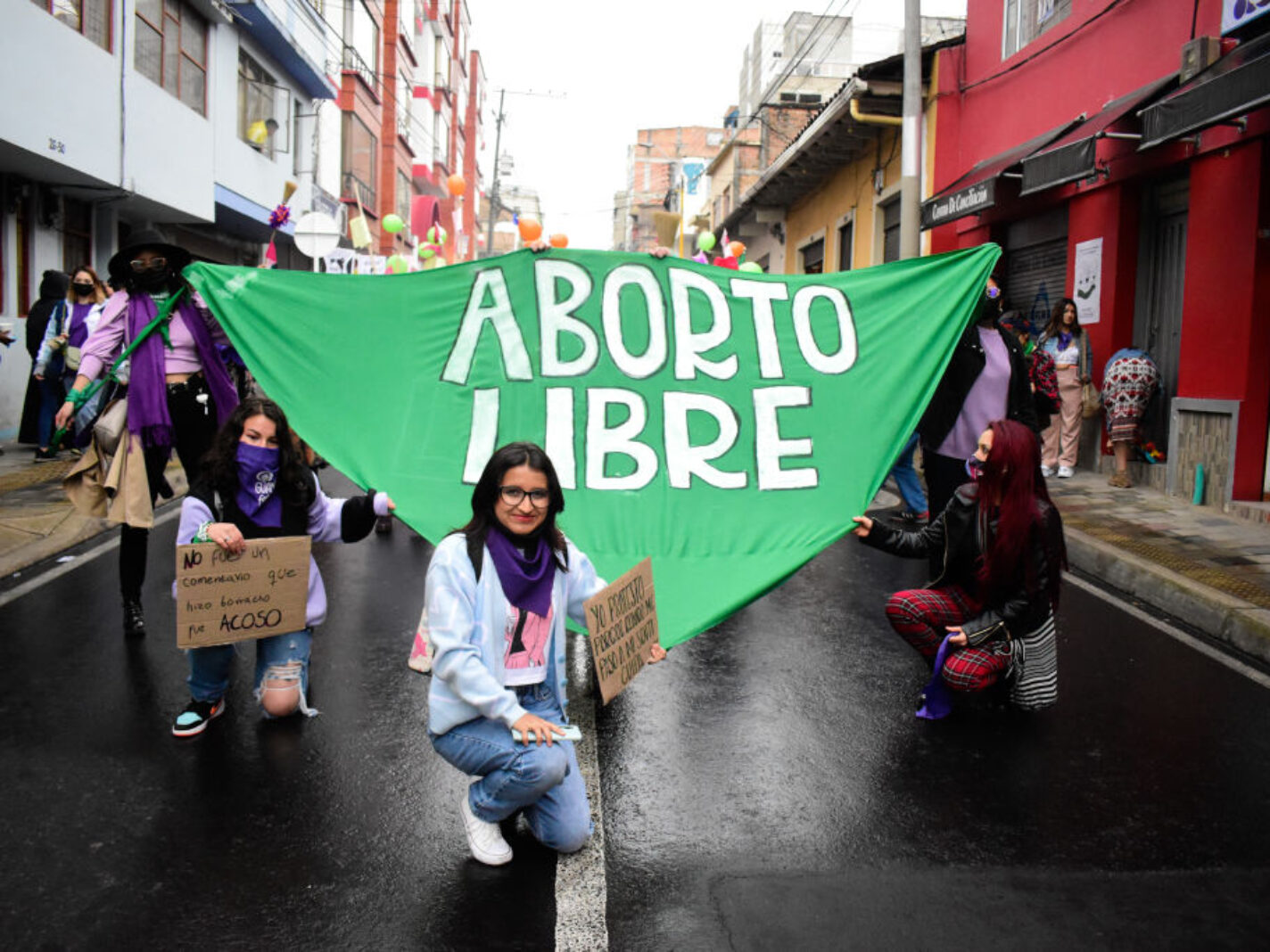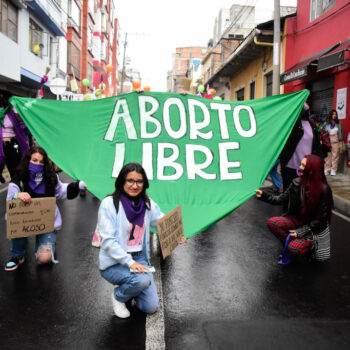UPDATE: The U.S. Supreme Court has officially overturned Roe v. Wade, ending the constitutional right to an abortion. This decision means abortion rights will be rolled back immediately in about half of the U.S. States. The decision also opens up the possibility the court might overrule other landmark decisions that protect the right to contraception, same-sex relationships, and same-sex marriage. In their dissent, the court’s three liberals wrote. “With sorrow—for this Court, but more, for the many millions of American women who have today lost a fundamental constitutional protection—we dissent.”
Latin America is taking steps to decriminalize abortion, while the US is seemingly preparing to take a step back regarding these rights. Yesterday, POLITICO published a draft of Justice Alito’s initial draft abortion opinion, which would overturn Roe v. Wade. The draft opinion is a complete repudiation of the 1973 decision, which guaranteed federal constitutional protections of abortion rights.
Today, Chief Justice Roberts confirmed the draft was legit, but the decision and opinion are not yet final. The high-profile leak might yet sway the court against overturning Roe v. Wade, but it’s clear the United States is trending towards criminalizing abortion rights, while the rest of the world moves towards doing the exact opposite.
In Latin America, for example, there’s been a recent push toward expanding these rights. Despite the fact that the region is overwhelmingly Catholic, some of the biggest countries have made strides in favor of reproductive rights. The Supreme Court of Mexico, for one, voted to decriminalize abortion last September. Before access to terminations varied wildly by state, now it is legal across Mexico. Colombia took the same measure this February, decriminalizing abortion during the first 24 weeks.
They follow in the footsteps of Argentina, which in 2020 legalized abortions up to the 14th week of pregnancy. In Uruguay, a first-trimester abortion on request has been legal since 2012. In Cuba, meanwhile, abortion has been legal since 1965.
Most of Latin America still lags way behind these countries, but the trend towards decriminalization is a clear and hopeful trend for the region, particularly as the United States is preparing to strip federal abortion protections, which will – unless the matter is codified into law – leave states to regulate abortion.
Hopefully, it’s not too late for the United States to look to Latin America and realize that abortion rights are human rights.




